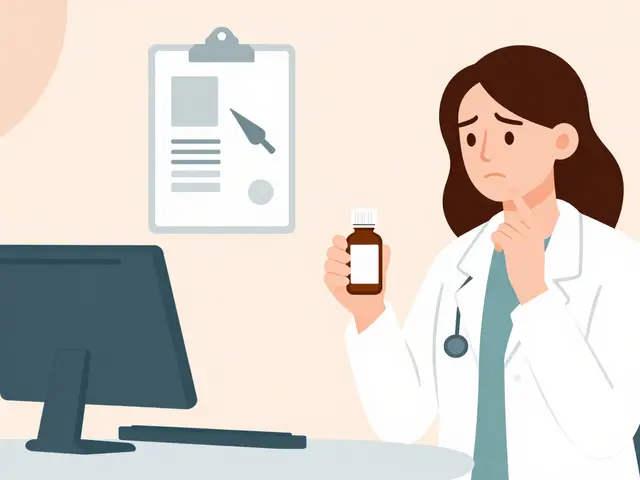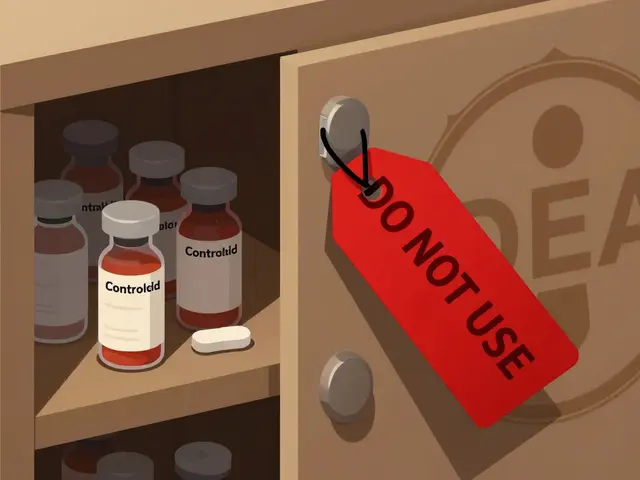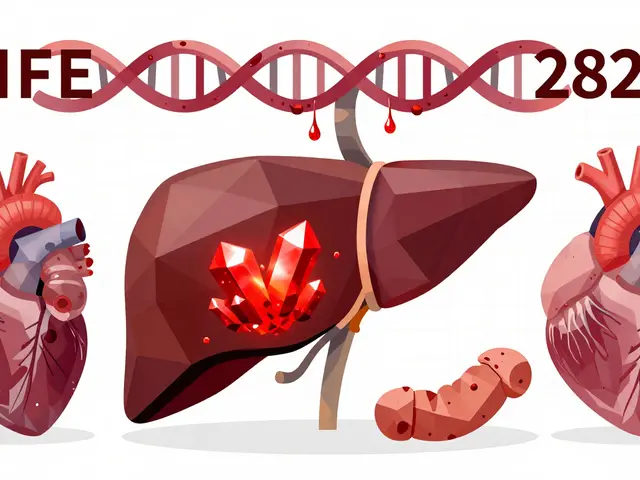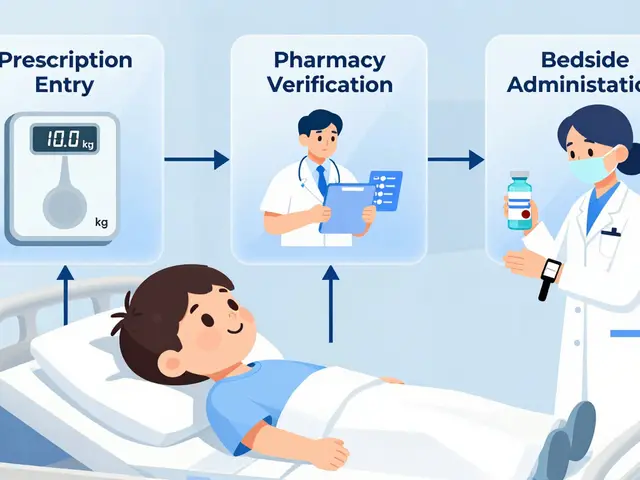Hashimoto's disease — what to watch for and how to manage it
Hashimoto's disease is an autoimmune condition that slowly damages the thyroid and leads to low thyroid hormone (hypothyroidism). People often miss early signs because they come on gradually: tiredness that won’t go away, feeling cold when others don’t, weight creeping up, and hair getting thinner. If any of that sounds familiar, this page gives straight answers on tests, treatment, and simple things you can do every day to feel better.
How Hashimoto's is diagnosed
Doctors usually start with blood tests. The main ones are TSH and free T4 to check how the thyroid is working. If those show low thyroid function, tests for thyroid antibodies (anti-TPO and anti-thyroglobulin) confirm an autoimmune cause. Ultrasound is sometimes used if the doctor wants a closer look. If you’ve had unexplained fatigue, persistent weight gain, heavy periods, or dry skin, ask for these tests.
Don’t ignore symptoms just because they’re common. Hashimoto’s often coexists with other autoimmune conditions like type 1 diabetes or celiac disease, so your doctor may check for those if symptoms suggest them.
Practical tips for everyday management
Treatment is straightforward: most people need a daily thyroid hormone pill (levothyroxine) to replace what the damaged thyroid can’t make. Finding the right dose takes a few blood tests spread over weeks. Once your dose is stable, testing every 6–12 months is typical unless symptoms change.
Small habits make a big difference. Take your levothyroxine on an empty stomach, 30–60 minutes before breakfast or at bedtime several hours after your last meal. Avoid calcium, iron, and antacids within four hours of the pill — they block absorption. If you switch brands, tell your doctor and recheck levels; some people react differently to different formulations.
Diet questions come up a lot. You don’t need a special diet to treat Hashimoto’s, but two things matter: avoid very high iodine intake (supplements or kelp) unless your doctor says otherwise, and get checked for celiac disease or nutrient gaps (vitamin D and selenium are commonly low). Some people feel better reducing gluten, but the evidence is mixed — talk it over with your clinician before making big changes.
Watch for when to act faster: if you have extreme tiredness, very low body temperature, or signs of slowed thinking and slowed reflexes, contact a doctor. In rare cases untreated hypothyroidism can progress to myxedema, a medical emergency.
Living with Hashimoto's means learning how your body responds to treatment and small day-to-day changes. Track symptoms and labs, keep regular follow-ups, and ask about other autoimmune checks if things don’t add up. If you want more practical guides or drug info, browse related articles on AllGenericMedicine: Comprehensive Pharmacy Hub for clear, user-friendly help.
Levothyroxine is widely known for its role in treating Hashimoto's Disease, an autoimmune disorder affecting the thyroid. This medication helps regulate hormone levels and alleviate symptoms like fatigue and weight gain. Understanding the function and benefits of levothyroxine can significantly impact management for those with Hashimoto's. It's crucial to explore dosage strategies and potential side effects for optimal results. Dive into the practical uses and insights about levothyroxine to better navigate this thyroid condition.
Continue reading...






